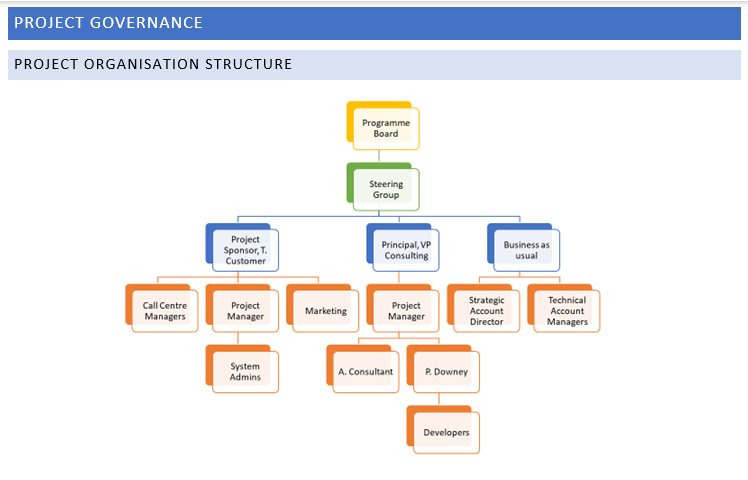Authority
Authority refers to the right to apply project resources, expend funds, make decisions, or give approvals within a project.
Authority refers to the right to apply project resources, expend funds, make decisions, or give approvals within a project.
This power enables project managers and team members to carry out their responsibilities effectively, ensuring that the project progresses smoothly and meets its objectives.

Why is Authority Important?
Authority is essential in project management because it establishes a clear hierarchy and chain of command, which leads to efficient decision-making and effective communication among team members. In addition, authority enables project managers to allocate resources and funds appropriately, manage risks, and implement necessary changes to ensure project success.How is Authority Granted?
Authority is typically granted through a formal delegation process, which may involve a project charter, Statement of Work, or other documented agreements. This process ensures that the appropriate individuals have the authority to carry out their responsibilities and make decisions per the project's goals and objectives. Therefore, organizations must establish a straightforward, transparent process for granting authority to avoid confusion and misunderstandings.Who Has Authority in Project Management?
At the start of a project, the Project Sponsor will grant authority to various individuals, including project managers, team leaders, and team members. The specific power given to each individual depends on their role and responsibilities within the project.Example authority hierarchy on a project
Project Sponsor or Project Board: The project sponsor or board is usually the highest authority in a project. They provide overall guidance, set project objectives, approve the project charter, and make critical project scope, budget, and timeline decisions. They are also responsible for resolving escalated issues and supporting the project manager.Project Manager: The project manager is responsible for planning, executing, and closing the project. They have the authority to make day-to-day decisions related to project activities, manage resources, and oversee the project team. The project manager reports to the project sponsor or board and seeks their approval on significant decisions or changes impacting the project's scope, budget, or timeline.
Team Leaders or Functional Managers: Team leaders or functional managers oversee specific project areas, such as design, engineering, or testing. They have the authority to make decisions about their area of expertise and manage the team members assigned to their department. They report to the project manager and may escalate issues or decisions to the project manager when necessary.
Team Members: Team members are responsible for carrying out the tasks and activities assigned to them within the project. They can decide about their specific duties and responsibilities as long as those decisions align with the project's goals and objectives. Team members report to their respective team leaders or functional managers.
This hierarchy may vary depending on the organization, project type, and project size, but it generally represents the typical project authority hierarchy.
See also Project Sponsor, Project Board, Project team, Change Management Process.
Our complete example of Project Charter contains a sample project authority or governance model, with an organisation chart, and descriptions of the authority of a project programme board, steering group and project team members. Download the Project Charter now.

Example Project Organisation Structure showing authority
When is Authority Applied?
The project sponsor or board will assign a project manager at the start of a project; they will have the authority to manage it day-to-day. The project manager will pull together their project team and grant them the authority to carry out their duties. Authority is applied throughout the project lifecycle, from initiation to closure, to make resource allocation, budgeting, risk management, and change control decisions. As the project progresses, the application of authority may evolve to meet the changing needs and challenges of the project.See all project management words
Methodology specific dictionaries / glossaries
- View the Agile Dictionary
- Managing Successful Programmes (MSP) Dictionary
- Prince 2 glossary of terms
- Full ITIL glossary of terms
- See also Risk Management Dictionary.

